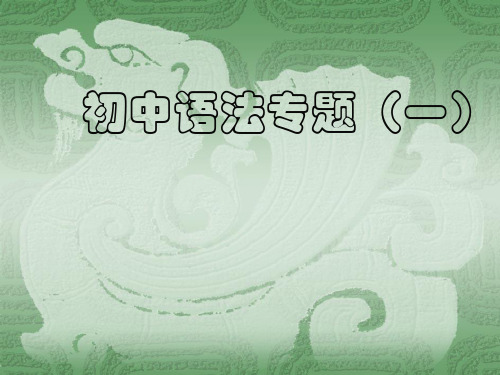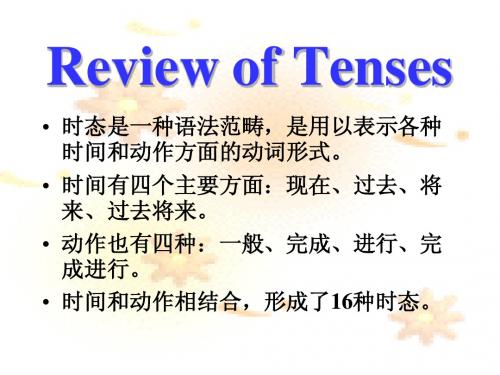He drinks a lot of water every day.
They go swimming in summer. 将这两句话改为一般疑问句,再改为否定句,
再
在时间状语从句(as soon as ,until) 和if引导的条件状语从句中,主句 用一般将来时(will+动词原形),从
一般将来时
意义:表示将来(从现在看将来)将要发 生的动作
谓动构成:①will,shall+动词原形。其中shall 只用于第一人称。
②be going to +动词原形。表示主 观打算,按计划,安排要发生的事情。
标志:tomorrow, the day after tomorrow next day(week, month, year…),soon, in +一段时间
① always, usually, often, sometimes ② every week (day, year, month…) ③ once a week, on Sundays, etc.
一般疑问句:①把be动词放于句首;②情态动 词提前③用助动词do提问,如主语为第三人称单 数,则用does,同时,还原为动词原形。
一般疑问句:be放于句首;will/shall提到句首
否定形式: will/shall not
am/is/are not
e.g. She will be back in three days. She will not be back in three days. Will She be back in three days? They are going to clean their classroom. They are not going to clean their classroom. Are they going to clean their classroom?





